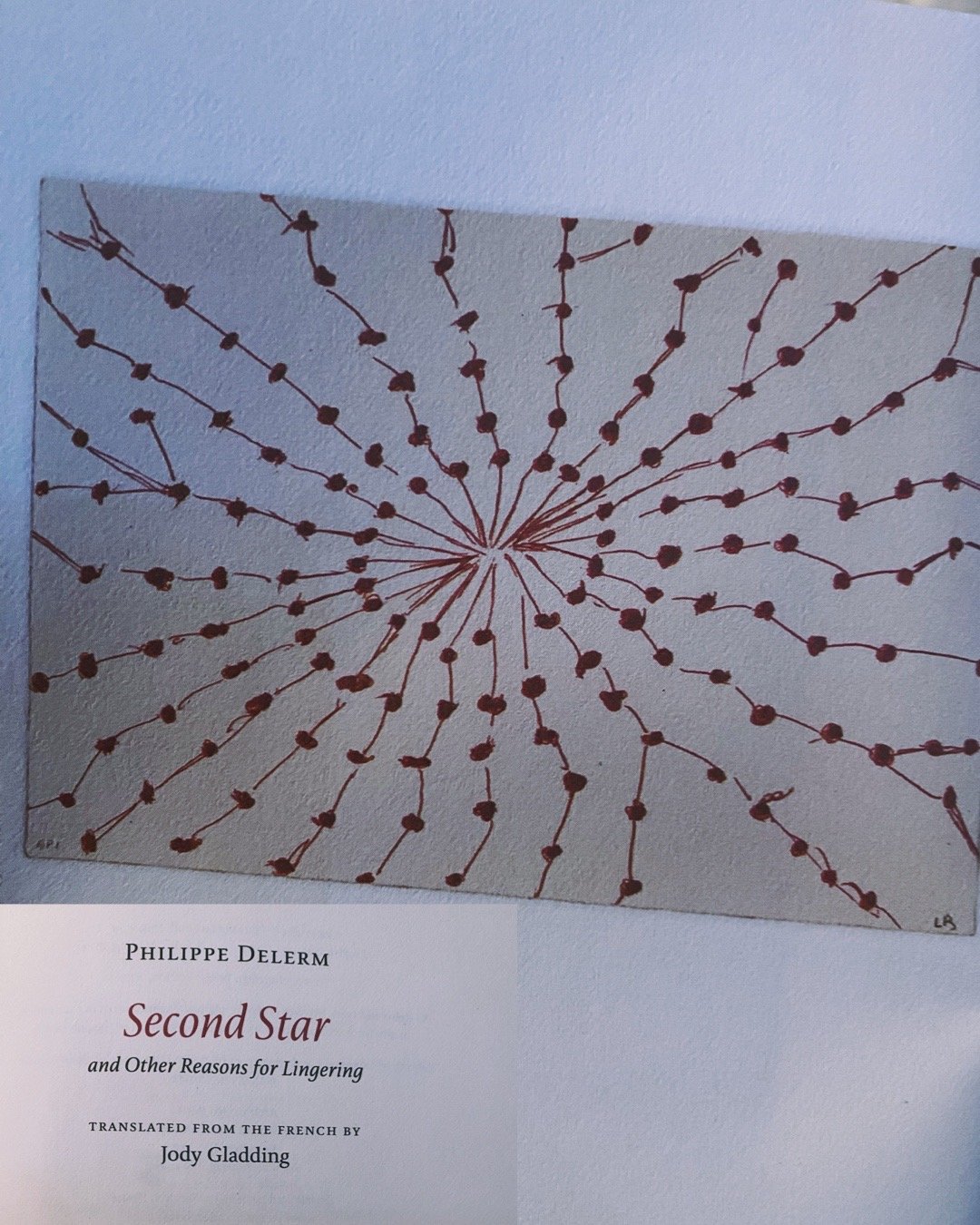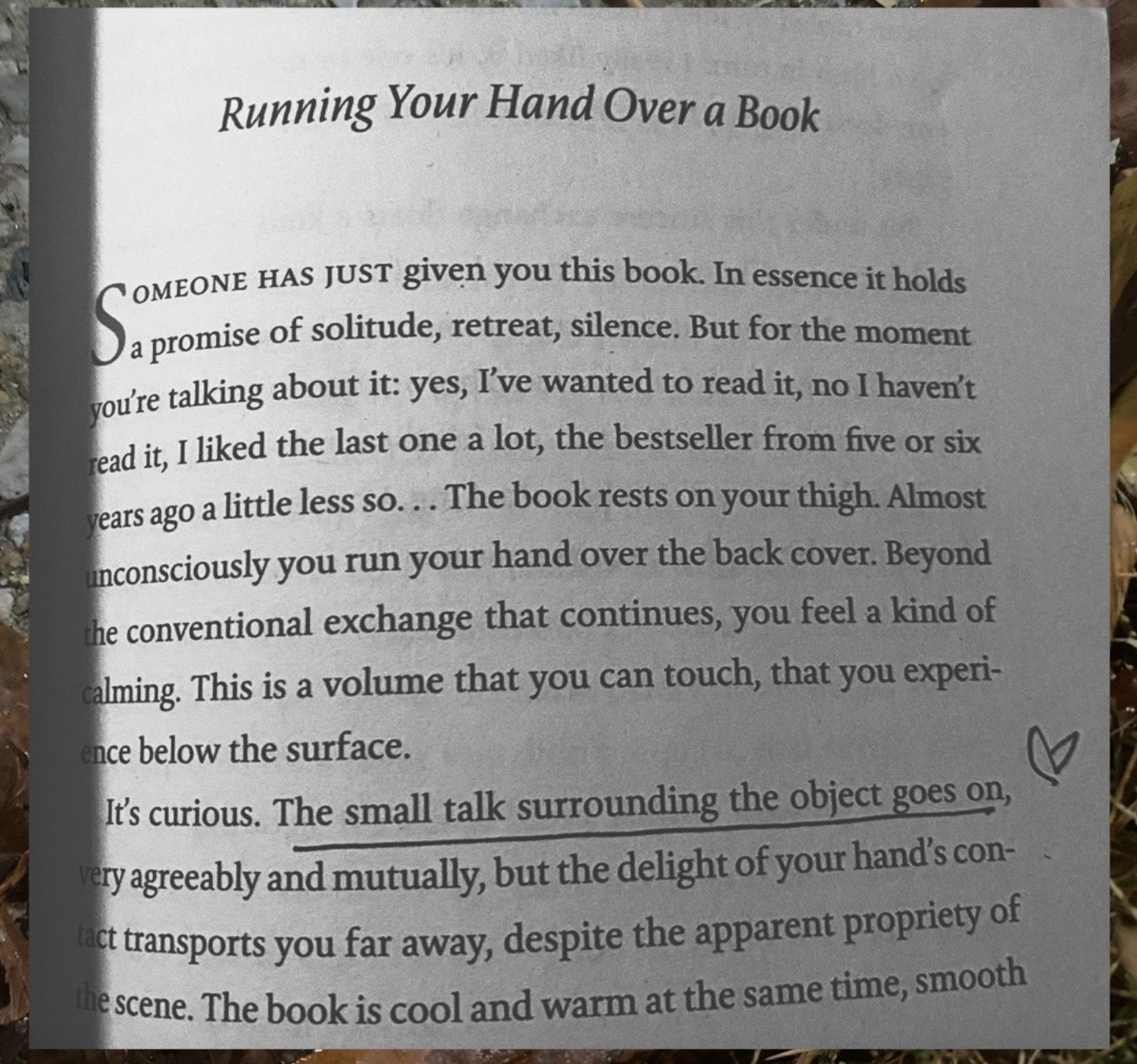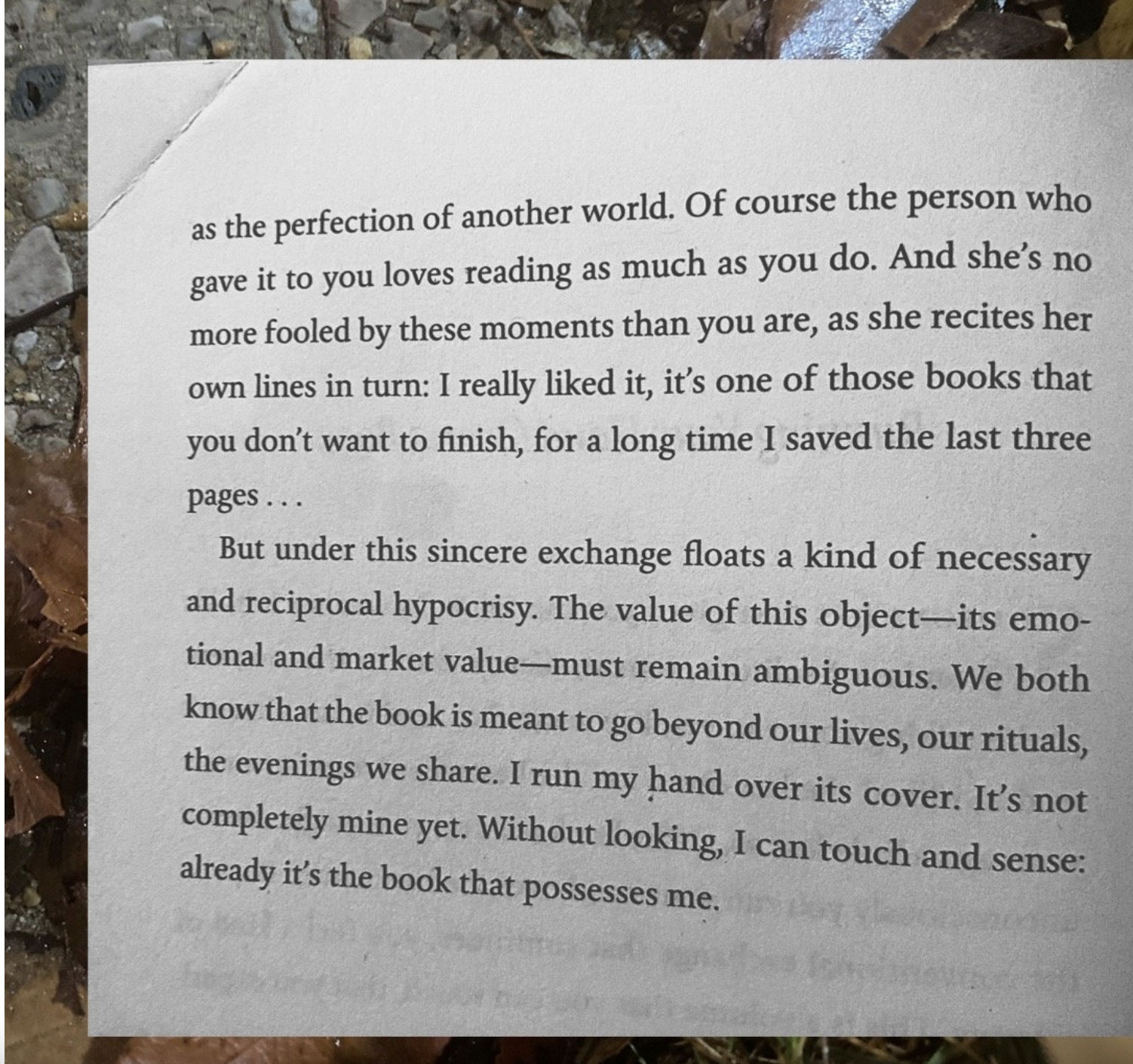“Someone has just given you this book. In essence it holds a promise of solitude, retreat, silence. But for the moment, you’re talking about it . . .”
- Philippe Delerm translated by Jody Gladding
It is Rebecca Hussey’s generosity (as well as the postal service) that brought this new translation of Philippe Delerm to my doorstep. Joseph Schreiber and Benjamin Woodard have read it, reviewed it, and approved it— which puts me in good company.
True to its subtitle, Philippe Delerm’s Second Star (and other reasons for lingering) celebrates the vignette of interiority. It works from the mind’s attachment to places and objects and gestures that stick to the memory. All is tenuous and tuned to tremble in Delerm’s hands. “The surest moment is almost the most amazed, the least possessable,” he writes of life’s tenderness and cruelty. No one knows which moment will be the last one, which kiss will mark the end of a life or a relationship. Nor can we predict “how many evenings are left.” Delerm holds on loosely, so to speak, and ends in the looseness of knowing the loss comes next.
The text grounds itself in the tactile, as can be seen in “Running Your Hand Over a Book” (excerpted below).
Formally, Delerm’s vignettes could be classified as prose poems or micro-CNF or diary entries. Officially, they consist of what Delerm calls “literary snapshots,” a form he invented two decades ago. By addressing the reader directly in the second-person, the author relies on his capacity to evoke recognition. He bets on us finding the strange within the familiar and ordinary.
The snapshots refuse to guise their heavy French accents; the reader sinks into the place. The “music of conversation” persists amid the parentheses of glances, and the captions beneath the silences between laughter and looking elsewhere. Delerm invites us to the tables of his preferred setting and lays a poet’s eye over the details and affects.
“The electronic cigarette is an ersatz cigarette” that, by its very nature, prevents “dependency” from declaring itself “triumphant” in the geste. Delerm misses “the eloquence” of Serge Gainsbourg with his wicked Gitanes. He jokes that perhaps a day may arrive when “there’ll be a Gainsbourg for vaping.”
“The Pavane of Folded Sheets” elicits a duet of bodies moving together in relation to an ordinary task. The seasons shift in relation to ordinary objects; in September, “everything changes without changing” and the sharpened blue sky keeps “raining light” on the windows.
Making love— in “Apart Together”— allows the fear of desire’s eventual cessation to join the silence between lovers after sex. The space is charged with the possibility of “that moment when the shoulder’s sense of security doesn’t necessarily come from the one embracing or the one embraced” so much as the risk of the relation. “You’re two at risk, you risk the silence, the amazement of two inviolate trusts” when the thing you could say to make all of this certain is also the thing that would freeze it into a statue, and begin the story of its ruination.
“The Lie of the Watermelon” builds on the contrast between its spectacular, massive heaviness and the “lavish nothingness” of its watery pink flesh. “Like desire gone wrong,” Delerm’s watermelon is “a mirage of heat and summer” whose solidity vanishes upon tasting.
“The electronic cigarette is an ersatz cigarette.”
- Philippe Delerm
“The value of this object must remain ambiguous,” Delerm insists in “Running Your Hand Over a Book.” That said, Jody Gladding’s translation isn’t ambiguous, for it was she who selected the particular snapshots and brought them together under the frame of the second star. If Delerm wrote the sky, Gladding is the one who named and organized these particular, incandescent constellations.


